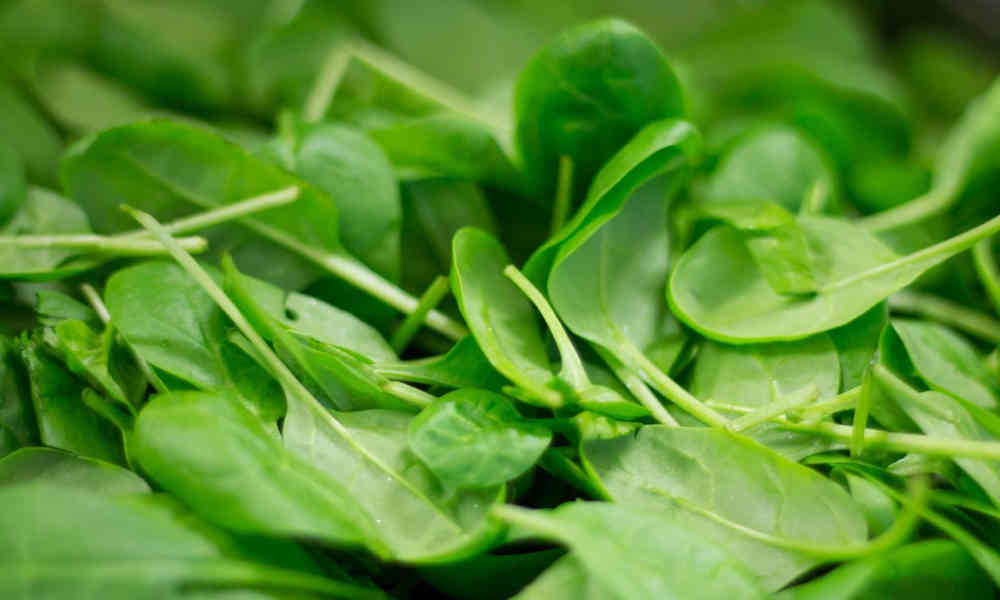Vegetables are not only for salads. You can also include them as a part of your daily diet to get the maximum health benefits. Below are some of the vegetables that should be included in your daily diet. These foods are loaded with beneficial nutrients. Here’s a list of some of the most important ones:

Spinach
Eating spinach is an excellent way to lower your cholesterol levels. The high fiber content and nitric oxide in spinach help keep blood vessels dilated, lowering the risk of heart disease. Cholesterol builds up in the arteries and narrows them, causing high blood pressure and an increased risk of heart disease. However, eating spinach on a daily basis can help prevent this condition.
Although spinach is generally safe for most people, it contains high amounts of oxalate, which should be kept to a minimum if you have a history of kidney stones. Additionally, people who take blood-thinning drugs should reduce their spinach intake. Lastly, before making significant changes to your diet, check with your doctor or pharmacist. The information in this article is based on personal experience and research.
If you’re not a fan of steamed or raw spinach, there are plenty of ways to incorporate it into your daily diet. You can use it in smoothies, soups, and omelets. Add spinach to any dish that calls for vegetables, and you’ll be surprised at how versatile it is. But be sure to limit your consumption of spinach; otherwise, it will reduce the quality of your overall diet.
Besides being low in calories and packed with essential nutrients, spinach is rich in essential vitamins and minerals that support your health in various ways. It may reduce the risk of cancer and manage blood sugar levels, and it can even increase the concentration of hemoglobin in your blood. It also has a low glycemic index, which can be beneficial for those with diabetes. The benefits of spinach are clear.
Kale
If you’re looking for a new vegetable to add to your weekly menu, try kale. This versatile leafy green is full of nutrients and can be eaten raw, chopped up in salads, steamed, sauteed, or baked into crisps. Kale is part of the cabbage family and has a cross-like cell structure, so it’s great for both you and your body. You can find it in the grocery store or even grow it in your own garden for dinner.
The micronutrients in kale are high, making it a superfood. It contains vitamins A and C, calcium, iron, and chlorophyll. Kale is also high in fiber and water, which help promote regularity. Another benefit is its vitamin A content, which converts to vitamin A when necessary. This is a vital vitamin for the heart and helps with clotting problems.
The nutrient content in kale makes it an excellent vegetable to eat every day. It helps improve the absorption of nutrients. When combined with other foods that support nutrition absorption, kale can be especially beneficial. It is also rich in Vitamin C, which helps your body absorb iron. Furthermore, kale contains a high concentration of calcium, making it a useful addition to a balanced diet.
Celery
If you are wondering what vegetables should be on your daily menu, celery is one of them. Celery is rich in vitamin C, calcium, and potassium. Its leaves are also edible. When purchasing celery, try to purchase only those that are within two days of the expiration date. Cutting celery too early will reduce its nutritional value and result in food waste. If you can’t use the celery within a week, try storing it in the fridge.
Celery is also an excellent source of antioxidants, which are plant compounds that fight disease. It also contains a good amount of electrolytes, which are chemicals found in water that are vital for bodily functions. These chemicals help maintain hydration and blood pressure, repair tissues, and improve nerve and muscle function. You should consume at least one cup of celery each day to reap its health benefits.
Carrots
There are numerous health benefits of eating carrots every day. Vitamin C is vital for the immune system and contributes to a healthy body. Vitamin A and potassium help promote bone health. Vitamin C contributes to collagen production, which is crucial for body health and wound healing. These vegetables are packed with various vitamins and minerals that can help your body function at its optimal level. The following are just a few of the health benefits of carrots.
Carrots are full of beta-carotene, a nutrient that contributes to their orange color. Researchers have found that beta-carotene is linked with a reduced risk of cancer, and other studies show that eating carotenoid-rich foods may reduce the risk of breast cancer. Additionally, carrots contain many vitamins and minerals, including vitamin C and potassium, and can be enjoyed in salads and smoothies.
A cup of carrots contains 40 milligrams of calcium, and 15.8 micrograms of vitamin K. Carrots contain significant amounts of both nutrients, but you should eat carrots in moderation. As a vegetable, carrots should be paired with a healthy fat. In addition, they do not raise blood sugar levels. Therefore, they are the perfect snack for diabetics.
Sweet Potatoes
The fiber content of sweet potatoes is high, and the vegetables are also a good source of provitamin A and beta-carotene. According to the Dietary Guidelines, adults should consume approximately 700 mg of vitamin A daily, and men should aim for 900 mg. These vitamins are crucial for proper body function and healthy skin. A single serving of baked sweet potato provides 56 percent of the recommended daily intake of vitamin A.
A medium-baked sweet potato contains 103 calories and is approximately 5 inches long and two inches in diameter. It contains 2.3 grams of protein, negligible fat, and almost four grams of fiber. Fiber helps people stay full for a long time and supports gastrointestinal and cardiovascular health. In addition, sweet potatoes have a high content of potassium, with just under a quarter of a cup containing over 500 milligrams of potassium.
If you’re wondering why sweet potatoes are so important, it’s because they are high in vitamin A. Sweet potatoes contain 400 micrograms of vitamin A in a medium-size, which is nearly double what the recommended daily allowance for men and women is. Vitamin A in sweet potatoes is important for the health of the eyes and the immune system. Beta-carotene also helps protect cells against damage.
Broccoli
One of the healthiest vegetables is broccoli. This nutrient-packed veggie is great for our digestive system and may improve our health in several ways. For example, broccoli can prevent constipation, improve blood sugar control, and promote heart health. And because it is low in calories, broccoli can be an effective weight-loss tool. Broccoli also completes our daily requirement of five different colored vegetables. And it is suitable for vegetarians.
Despite its low-calorie content, broccoli is packed with vitamins and nutrients. This vegetable contains over 10 percent of your daily vitamin A, B2, C, and E. Broccoli also contains plant-based omega-3 fatty acids, including a type known as alpha-linolenic acid, which has anti-inflammatory properties. It is a good source of fiber, so eating a serving of broccoli a day can help you get your recommended daily intake of 25 to 35 grams.
The antioxidants in broccoli may help prevent or slow the development of certain cancers. Researchers have linked broccoli consumption with a decreased risk of developing certain cancers. Some studies also suggest that broccoli consumption may reduce blood sugar levels and reduce oxidative stress. Some of these benefits may come from the high levels of glucoraphanin and sulforaphane in broccoli. While the latter compounds aren’t proven to be beneficial for humans, they are known to be beneficial for the body.

